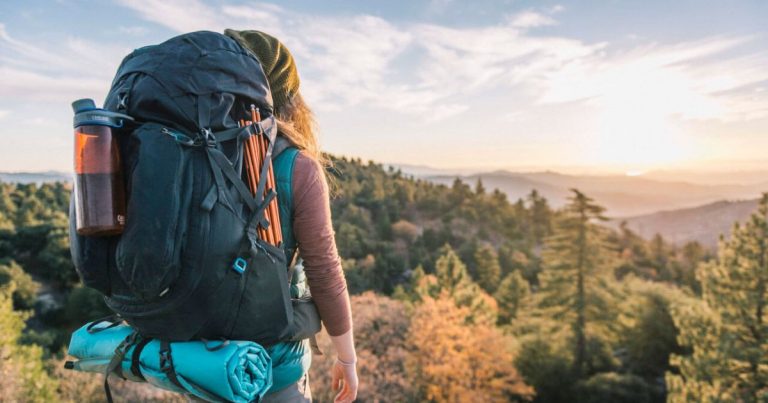Ohhh, the thrill of exploring new destinations! We know how much you want your adrenaline to be pumped! You just can’t wait to make your own trails and bring something fresh into your eyes! That’s the spirit of an explorer, but to be a true explorer (ala National Geographic explorer), you should first sit down, take off your hiking shoes, and let’s get to the truth of the matter.
Travel legends know the challenges of exploring (and the danger that comes with it). Thus, they’ve learned from experience that without a clear understanding of yourself, a clear travel plan and due diligence – any destination can be their last destination – if you know what they mean.
Pros never run off like a wild man – THEY PLAN.
Today, learn how the pros really do their backpacking, and you better learn from it. Here’s how you can turn from an average traveler to an official True Backpacker.
Backpacking Tip #1 Choose An Easy Destination First
Pro travelers didn’t start as Mount Everest hikers – so should you. When they were just starting, they chose an easy trek to start with. They know that as beginners, first, they needed to have a feel of what it is like to hike.
“How does it feel? How does it look? Is it really for them?” Those were some of the things they were trying to figure out while exploring this easy destination they chose. Beginners shouldn’t put themselves in danger just to answer these questions.
By starting with a smooth and easy destination, it saves any beginners the risk of being discouraged early. The wisdom of beginning with an easy one is to build up your momentum, appreciation, hunger and strength for bigger challenges. Backpacking, as every beginner should know, is a step-by-step process.
Backpacking Tip #2 Get Ready For Your Backpacking. We Mean G-E-T R-E-A-D-Y
We know it. First-time hikers or those who are still beginners find it hard to prepare for their trip properly. Why? Because they are too thrilled and excited that they just want to go there, but pros know that this could be the worst way to prepare for a physically-demanding activity. For beginners, now is the better time to put that excitement aside and let logics run again by following these preparation tips:
1. Prepare yourself physically
Do the necessary activities to enhance your body’s readiness on a physically demanding trek. Also, we suggest enrolling in first aid training to understand what to do in an emergency when no one is around.
2. Prepare yourself mentally
Learn the basic technical stuff about your trek like setting up the tent, basic first aid, reading maps and compass navigation.
3. Know your logistics
Knowing the “to-and-from” of your destination is not enough; being prepared is more than just that. Make sure that you have all the necessary permits for your trek. For example, people who are visiting Yosemite National Park, which is a very popular destination, prepare all these necessary permits to ensure that their trek would go smoothly.
It frustrates any hikers to encounter some headaches with permits while they’re all packed and ready to go to their destination. Avoid this scenario.
Backpacking Tip #3 Bring Only The Essentials
We know that your definition of ‘essential’ is somehow different from what it should really be. So let’s get the official definition straight from the dictionary, according to Merriam-Webster, the word essential is defined as: “of the utmost importance: BASIC, INDISPENSABLE, NECESSARY.”
Having said that, you should now know that the things you need to bring are only the things you can’t live without while you are in the trek. Better unload your packs of junks and focus on these specific things:
- Tent
- Communications Device
- Navigation and Emergency Gear
4.Toiletries
- Tools for Emergency Repairs
- Backpack
- Sleeping Bag
- Sleeping Pad
- Stove
- Kitchen Supplies
- Water Jugs/Bottles/Tumblers
- Sun/Bug Protection
- Flashlight
- Whistle
Overloading yourself with unnecessary stuff is a burden that will prevent you from enjoying your trek.
Backpacking Tip #4 Planning The Food To Eat
Yes, it might sound a bit extreme, but even the food that you’ll eat while on trek must be planned as well. What beginners should remember right before they take on a trek is not to carry perishable foods and canned goods. No to perishable foods because it will just be a waste and no to canned goods because it would add weight to your load.
Carefully plan on how much you’ll eat at each meal, and how much food you should stack in case of emergency. This measure would save any travelers from carrying too much loads while on the trek while having an extra stack of food in case of emergency. Efficient, right?
Everyone’s excited about every new territory that they plan to conquer (including us), but too much excitement may lead to some serious problems.
Of course, no one knows what will exactly happen during the trek, but to ensure that everything would go as smoothly as possible, preparation is a must for every trip. It pays to set aside everyone’s excitement first.

0 Comments